|
Last week some guys from my ward were bragging about how many guys they've kissed and the smaller numbers of girls they've kissed and trying to guess how many guys some girls in the ward have kissed. Their guesses were way off. One girl had kissed zero guys, and I asked if she was waiting until she's over the altar, and she got huffy and people laughed and I thought No, wait, I was just surprised, I was just curious, I wasn't trying to be mean this time. I would never tease about such a potentially sensitive subject. I also had to say my number, and the number was five, and then I figured that's as good a reason as any to write this post that's been sitting in my drafts for twenty-one months. These are those five. Not that the number itself is particularly impressive, but the stories behind it sure are a lot less so. Mary BrothersMary was at least in fourth grade, maybe sixth, when I was in kindergarten. We rode the same school bus. She had an equally attractive sister in my class, but I was far more interested in older women thanks to the sister missionaries who used to put me on their laps and tickle me. Bullies had not yet destroyed my confidence or turned me into an introvert, so every afternoon when she got off the bus I yelled, "Bye Mary, I love you!" And then one day some older boys thought it would be funny to restrain her so I could kiss her. Nobody taught me about consent when I was five years old, okay? I'm sorry. At least I only kissed her on the wrist. It was the easiest part to reach as she tried to get away. Ugh, I'm going to hell. Natalie DavisFor a couple years before they moved from New York to Utah, my family often hung out with the Davis family. Their daughter Natalie was probably twice my age. She had a twin sister, but I knew which was which and I knew which one I wanted. She also had a sister my age, but see my previous comment about missionaries, and also I thought her sister my age was annoying. All of us kids slept on the Davises' trampoline one night, and Natalie told us a creepy/humorous story about a creepy voice that said "I gotcha, where I wantcha, and now I'm gonna eatcha," and her doing that voice gave me a mild case of vorarephilia before I came to my senses. Long story short, one day we were at a Primary activity at a park somewhere and I decided to make my move. Natalie was sitting and talking to a friend, which enabled me to reach her cheek with my lips. Natalie's friend: Natalie: "It's okay, we're related." Me: Yeah, so I had missed the discussion where our families had found out that her grandfather was my mom's grandfather's brother, or something like that, I don't remember. It was something distant enough that we still could have gotten married, but c'est la vie. Kristin PikeEven though she was a few years younger, I danced with Kristin at a school dance one evening and decided for whatever reason that I wanted to kiss her, but by this time I was mature enough to at least take into account the possibility that she didn't want me to kiss her, so after stressing about it a little I compromised by kissing the top of her head as she walked away. She giggled and kept walking. That was probably some time before I asked her to prom and she couldn't go because she was grounded. It was quite a while before she reached out on Facebook, having ignored me for years, and gave me her sob stories and asked for money and came up with excuse after excuse for why she couldn't pay me back when she said she would and needed more money. Long story short, she ruined my life for a long time and by the end owed me more than six thousand dollars (every penny of which, surprise surprise, she still owes me). She said she thought to ask me for help because she remembered that I was "nice" in high school. I wish I had been mean to her like everyone else. Natalie HintonUSU has a tradition called True Aggie Night where you stand on a big letter A next to the building with another big letter A on top during a full moon and you kiss a True Aggie to become a True Aggie. I accomplished this during my first week of college ever. I just showed up by myself and got lucky. As I loitered in the crowd, Natalie Hinton asked me something like, "Did you go to Skyview High School?" And I said something like, "No. Are you a True Aggie? Do you want to kiss me?" (I now know that during the first week of school, the requirement for one party to be a True Aggie is waived, but oh well, at least I covered my bases.) And I stressed about it a little, but it was over really fast. I knew her name because she signed a little card attesting what she had done to me. I scanned this card once upon a time but I can't find the scan now, and the card was destroyed in a washing machine, leaving no more evidence for this story than any of my others. We became Facebook friends and she was in my anthropology class a year later but I never talked to her again and we aren't Facebook friends anymore. Some Black GirlI swear on the holy books of every religion in the world that this is true. Once I had a roommate who had a woman spend the night, and after a few weeks I realized she wasn't going to leave. The landlord didn't care. I don't know if she paid rent. I know she didn't pitch in for utilities, and my roommate flipped out on me when I suggested it. Anyway, at some point she somehow got it into her head that I should kiss her "so that you can say you've kissed a black girl, and I can say I've kissed a white guy." My roommate did not find that logic convincing. They argued about it in front of me, with her being like "Come here" and him being like "Don't you dare" and me wondering when Allen Funt was going to jump out of the couch. She had to compromise, and brought in one of her black girl friends to kiss me instead. She filmed it. I'm not in touch with her and I've never seen the video, so there's no more evidence for this story than any of my others. Afterward her friend said, "You're a good kisser." I thought, I have almost zero experience; you don't have to lie to make me feel good. A Gay FriendI almost forgot about this one. I guess I have to count it. I'll keep him anonymous since he isn't out to his family. On my birthday he told me he was interested in me, and that he knew he probably wasn't my type, but he'd like to kiss me, and when I didn't say anything for a moment he took that as permission. It wasn't, but whatever. Karma. Later he apologized for making my birthday about himself and asked why I let him do it.
0 Comments
I used to post screenshots of myself arguing with people on the internet, usually on Facebook, usually critics of The Church of Jesus Christ of Latter-day Saints, a lot more often. I get into fewer arguments than I used to because I'm trying to be nicer on social media and I've figured out that most of them are a waste of time anyway. I'll often give one response to a stupid comment and then ignore whatever the person says next, which I suppose makes me a troll, but it's my compromise. Sometimes I just can't not say anything. I'm not made of stone. Anyway, I got into a couple of arguments recently that I don't regret because I was standing up for important principles - and not with critics of my church, but with members, who collectively do far more damage to it than the critics could dream of. People who get their idea of gender roles from the 1950s are bad enough, but at least they're almost in the right century. It's a little startling to realize that people live and work among us who get their idea of gender roles from the Bronze Age. (When I say "people" of course I mostly mean men, but I've seen plenty of internalized misogyny, so I can't discount the possibility that some women also hold these views.) I encountered the second one in as many months on a recent YouTube re-upload of Valerie Hudson Cassler's 2010 FAIR Conference presentation "The Two Trees". In this presentation she outlines a potential non-sexist paradigm for the part of the Latter-day Saint endowment ceremony where women covenanted to hearken to the counsel of their husbands (or obey the law of their husbands before 1990) while men covenanted to hearken directly to God. Though I respect her and her work, I don't find this paradigm convincing because a lot of it is pure speculation, because that part of the ceremony was changed in 2019 and rendered most of it moot, and because we know that Brigham Young (who oversaw the all-male committee that wrote down and systematized the endowment ceremony 35 years after it was introduced) believed that men were responsible for leading their wives to salvation. I think placing men between women and God was simply a sexist mistake that didn't get corrected for a very long time. But anyway, I encountered this guy in the comments: Benevolent sexism in a nutshell: "Women are superior to men, so they shouldn't have rights." Note how I tried to be civil by not attacking him as a person, even though I think nothing of him as a person. I didn't say that he was woefully out of touch with reality and irredeemably sexist, I just said his comment was. Also, yes, Moses 4:22 is descriptive of the power struggle in fallen marriages. The "desire" here is not one of love, but control. The same language is repeated in Moses 5:27: "Satan desireth to have thee... And thou shalt rule over him." Like, seriously, what is he thinking? Does he think any substantial percentage of women spend all day in bed while men wait on them and buy them things? Yes, I'm sorry, my attempt to be civil faltered under this barrage of stupidity, but I did still say that his behavior, not he himself, was delusional. I should have picked better phrasing than "household chores" to better encompass women's labors in other times and cultures that don't fall under that category, but you get the idea. And studies have found that when both partners in a heterosexual couple have jobs - which is increasingly a requirement in today's economy - the woman still does most of the housework. A better question would be, if men's gender roles are so awful, why have they fought tooth and nail to keep women out of them? Because they're concerned about women? Hahahahahahahahahahahahaha. But anyway, I had to let the matter drop until I get some more life experience. And then there was this. I'm in this Facebook group that deals with critics and criticisms of The Church of Jesus Christ of Latter-day Saints, because I've long had an interest in that sort of thing and a desire to defend my faith, but I've butted heads several times with its primary demographic of middle-aged white conservatives. When so many people struggle to get along with me, of course I have to consider that maybe I'm the problem - but I think not. For one thing, they're still in the mindset that the main threats to the Church are evangelical Christians - which is no longer the case in this secular age when mainstream American society doesn't care about evangelicals' opinions on anything - and not only waste a lot of time arguing with them, but often go from defense to offense, hypocritically mocking and poking holes in their beliefs. For another, they have such a persecution complex that they regard any member who wants to see any kind of change in the Church as an apostate and a threat. They seem to have a particular distaste for everything Jana Riess writes. She's more radical than I am but I would die without more liberal members like her pushing back against the insufferable conservative church culture. For another, they're very big on the apologist victim-blaming game, e.g. "If you experienced a faith crisis after discovering uncomfortable things about church history that you were never taught, it's completely your own fault for not reading everything the Church has ever published." For another - and they certainly aren't alone in this - they bend over backwards to avoid developing a shred of empathy for LGBTQ+ members, because recognizing these members' pain would give them cognitive dissonance over the Church's teachings and policies that cause much of it. (I live in that cognitive dissonance.) So any gay man who's less than enthusiastic about choosing to be alone and celibate until he dies or marry someone he isn't attracted to is seen as a threat. David Archuleta recently shared an hour-long Instagram video in which he opened up about struggling to reconcile his faith and his sexuality, about his loneliness and depression and suicidality. Now if you want to uphold the Church's teaching that marriage is only between a man and a woman, and if you disagree with the path that he's thinking about taking, that's one thing. But if you are a baptized member, you covenanted to mourn with those that mourn and comfort those that stand in need of comfort. Not just those you agree with or those whose struggles you can personally relate to or those who will never cause you cognitive dissonance by being the way God made them. And that does not, by any stretch of the imagination, involve constantly trying to minimize their struggles and belittling them for not having more faith or stamina when required to do things you probably wouldn't be willing to do yourself. The desire for companionship is fundamental to almost all human beings. It is not analogous to alcoholism or whatever other temptations these people compare it to. For one thing, even if you struggle to abstain from alcohol, there are still countless other things you can drink. And LGBTQ+ people who get no empathy, no understanding, and no love are killing themselves all over the place. David Archuleta's vulnerability will save many lives. So anyway: Most of the comments were in agreement and insensitive - a bunch of happily married straight people who think God appointed them to police gay people's adherence to the law of chastity wondering why David Archuleta has the audacity to think God should change the law of chastity. Also, they think young people pretend to be bisexual for popularity points. Emily clarified that in her opinion David Archuleta "is now an anti-Mormon." But there was just enough pushback from the minority of actual Christians that an admin warned about the post being muted or taken down if it escalated too much. So I escalated it. I put the devil's tool of contention to a good purpose. I said something like, "Yes, you are a terrible person. [Something something I don't remember] And all of you people mocking him without having watched the video can go to hell." And then I replied to a few people, including the genius who thought David Archuleta needed to "work through his struggles" but not, you know, actually tell anyone about it or get any support. And commenting was turned off and then the post was deleted. A friend in the group who has been equally disgusted with its direction, and for whom this post was the final straw, tried to make a comment but was too late. I print it here so her effort won't be in vain: How is it that when we see someone publicly voice the pain and confusion they’re feeling regarding keeping their covenants in the church, this group’s knee jerk reaction is to treat them as though they were the new John Dehlin or Zelph on the Shelf? Did you and I watch the same video? He has literally been struggling with suicide ideation, a hell that I wouldn’t wish on my worst enemy, and you say “poor little rich boy”? Seriously, THAT is your reaction?? That “poor little rich boy” is still a human being, and as someone who has frequently struggled with my own mental health issues, HOW DARE YOU insinuate that he somehow deserves less compassion and empathy just because he also says he’s open to having a gay relationship! Yeah, maybe you and I wouldn’t advocate for making that kind of choice, but you wanna know the secret to keeping gay people in the church? Maybe don’t belittle them, even if behind their backs, when they open up about how hard this mortal journey has been for them. “Yeah but everyone has their struggles!” Yeah of course they do, but do you speak of other people’s struggles the same way you do of this? But no, his struggles can just be dismissed and waived away because he’s a public figure, and a gay one at that. P.S. bisexuality is a real thing. Presuming that those who identify as such are largely just trying win popularity points is beyond ignorant. Even if someone were making it up, it shouldn’t change the way you and I treat them or speak about them. Emily's next post was, "I am leaving the group." And that brought out a lot of sadness, and a few people who didn't know what had happened asked why, but of course after making the post for attention she didn't stick around to answer questions. One of the few people who displayed any basic decency on her previous post spoke up here too, so I'll give him a shoutout. Alas, when I spoke up for basic decency on this new post, people got pissed at me. I won't attempt to reconstruct the whole argument, because it probably isn't that interesting and several comments by me and others were deleted. You'll just have to look deep inside yourself and decide if you trust me or not. I said this to one person who lamented the deletion of the previous post: I felt like this was pretty straightforward stuff, but I was wrong. Is... is she serious? Is she really serious? Unbelievable. Everyone knows you don't use three adverbs in one sentence. It sounds awful. I also got a reply from Darryl Barksdale, the founder of FAIR. In keeping with that organization's grand tradition of scholarly rigor and academic standards, his comment was a puking emoji. Then further down in a new thread he said, "I gotta tell you... Emily was the wrong one to go. I'd happily trade her for Nicholson." (Both of those comments were deleted). Now, I've barely had any interactions with this guy, but he's one of the biggest jerks I've ever observed, and I respect him a little bit more than I respect law enforcement. So it was a mistake for him to let slip that my presence in the group bothered him so much, because that knowledge made me happy, and I don't think that's what he was going for. I replied, "Boo hoo." And then he went and made it even better: Yes, this jerk I've barely interacted with was so bothered by me not being a homophobe that he left the group. I never tried to make this happen, I never tried to harass him into leaving the group, I never would have thought to care enough to muster up the effort to carry out such a thing, and he just dropped it in my lap. Tender mercies. And then you see this guy Leighton. He was the main guy who argued with me and several of our comments were deleted. I haven't respected him much either - mostly because of his deliberate lack of empathy on this very issue - and he, too, made the mistake of letting me know how much I bothered him. His last comment addressed to me ended with "Shut. Your. Mouth." I could just imagine him seething. I could just imagine his frustration that he couldn't make me take orders from him. He could have just blocked me, and that would have taken less effort than continuing to respond, but maybe he was too angry to consider that. I guess putting periods after every word was his last-ditch effort to intimidate me. That comment was deleted, but my reply to it stayed up and is now a bit of a non sequitir. Really, all this because I espoused the controversial notion that mocking lonely and depressed people is wrong. I was rather surprised to discover the depth of Leighton's personal vendetta against me, especially when, twenty minutes after I acquiesced to the admins' damage control and stopped commenting, it manifested in what struck me as a rather bizarre obsession with trying to get "the fellow" (me) kicked out of the group. Maybe he has a crush on Emily. Objecting to objectionable behavior is literally my objectionable behavior that Leighton objects to. Wow. Please, tell me more about what you think. I did not make any nasty comments about Emily in her absence. You can't choose to ignore something that doesn't exist. No, I did not literally say that. Leighton began the argument by replying to my comment pictured above, "Suggestion: shut up." I said, "I have a suggestion for you too, but it would get me kicked out of the group :)" (Both of these comments were deleted.) Leighton said, "On the evidence, that would certainly be appropriate and desirable." I said, "Because I'm the only person here who's even trying to follow Christ?" (That comment was deleted.) So it was a rhetorical question, not a claim, and its obvious intent was to highlight the absurdity of him saying I should be kicked out for speaking up against bullying marginalized people. I also said "trying," and that was a deliberate word choice to acknowledge that I'm by no means perfect, but in this instance I wasn't the one spitting on everything Christ stands for. Ah, so he does know how to represent people's words accurately, as long as the people is himself. Sorry, I'm still confused. Please explain it again. I don't know about 2 and 3, but 1 did not happen. Boo hoo, Leighton. Honestly, this is one of the most pathetic things I've ever seen. My friend is biased, but her summary of the whole debacle is good enough for me: I do want to say one last thing in my defense. I am a very imperfect individual, but in this instance, I was callous toward people who were first callous toward people that I love. In other words, I was callous not because I don't care about people, but because I do. And I won't pretend that Jesus would have said exactly the things I did, but I do think He would have also been blunt and even rude - like He was when the Pharisees were dicks to marginalized people - and I am perfectly confident that on the whole I did the right thing and He's proud of me. I won't apologize for objecting to objectionable behavior. I can't change all the things in the Church that I would like to change, but I can and will refuse to tolerate members choosing to make it a more toxic environment than it needs to be. It did take a lot of time that I could have spent on homework, but now my effort is on record here so it can be magnified by both of the people who read my blog.
"We need to listen to and understand what our LGBT brothers and sisters are feeling and experiencing. Certainly, we must do better than we have done in the past so that all members feel they have a spiritual home where their brothers and sisters love them and where they have a place to worship and serve the Lord." - M. Russell Ballard Where, oh where does the time go? Friday and Saturday marked the two-year anniversary of the worst day of my life (which encompassed an entire sleepless night). I'm not going to explain it again. I wrote about it at the time in a blog post which is still there if anyone's interested, but which I don't recommend because it's somewhat incoherent. I was still reeling from shock and confusion and anger, and I jumped around chronologically several times. But it was useful for recording quotes and details while they were still fresh, which has helped me with subsequent accounts. The most definitive one, and the one which I do recommend to anyone interested, is an essay I wrote for class last year called Things That Rhyme with "Elise." Though it doesn't include every possible detail, it is much better-written overall. It left a big impact on my classmates and my professor. Actually, because it was so long, I split it into two parts and submitted them separately instead of writing two essays. And the first part had just a bit of foreshadowing of what I like to think of as the greatest plot twist since (spoiler alert) "No, I am your father." I still laugh a little to myself when I think of how my professor began her feedback letter to the second part. I have such a sick sense of humor. I mean, I felt really bad about this plot twist, though not as bad as I did about living through it. Everyone was so invested in the story, thought it was so sweet and so cute. I felt like I was preparing to shoot a puppy as it looked up at me with eyes full of love and trust. But to continue: Yes, there is some mention of race in the essay even though the worst day of my life had nothing to do with race, because I wanted to acknowledge that larger conversation and show my awareness that even when I am misunderstood and mistreated for being different, I maintain some degree of white privilege. There is zero doubt in my mind that my interactions with the police and hospital staff would have gone even worse if I was black. And as much as Officer Hayden Nelson of the Logan City Police Department can go fuck himself, I'm not accusing him of conscious racial prejudice. But he was very obviously prejudiced against me because of my mental illness, and it's also self-evident that white cops in the US are conditioned to perceive and treat black people as more threatening, while white healthcare workers seem to believe they have different biology altogether. We saw this, for example, with the cops who assaulted a neurodivergent black man named Elijah McClain for "looking sketchy," then claimed he had exhibited "superhuman strength" and the fictitious medical condition of "excited delirium" (both often used by police to justify brutality). We saw this with the paramedics who injected him with ketamine without attempting to talk to him and overestimated his weight by eighty pounds. Those cops and paramedics should be publicly executed just like they publicly executed him. So yeah, I wanted to recognize my privilege of not getting murdered for existing while black. It would have been very tonedeaf not to do so.
I couldn't have asked for more understanding than I got from my professor and classmates. It was kind of intimidating, in the era of #metoo and #believewomen, in a predominantly female class in the hotbed of liberalism that is a college English department, to assert that two women falsely accused me of some form of sexual misconduct. (In saying that, I don't mean to suggest that I have it worse than the women who are actual victims and still don't get taken as seriously as they need or deserve. USU is currently being sued, and its police chief Earl Morris was recently forced to resign, for that very reason.) I am grateful that everyone believed me and empathized with me. I don't take that trust lightly. There was one part of the essay that I'd been tempted to gloss over because it put me in a less positive light, but I realized that if a classmate from my undergraduate non-fiction course (with the same professor) could write an essay about abusing her husband, I could admit to being less than perfect too. And then only one person even commented on that part in their feedback. Toward the end of my essay, I didn't have room to explore all the introspection and gossip and recovery that filled the months after the worst day of my life, and in particular the process of reconciling what I thought I knew of Calise's kindness and maturity with her very unkind and immature action, so I tried to summarize it. I tried to explain why, to the best of my knowledge, Calise and Talease did what they did. I didn't want to cast them as one-dimensional villains when in real life I know them to be complicated people, and I've forgiven them and I didn't want anybody to hate them. (Maybe someday I'll be able to say the same about Hayden Nelson.) But my professor and classmates didn't think that worked. They said Calise and Talease already came across as complicated, and that the end of the essay needed to stay focused on me and not them. So I changed that. In my first blog post about them, even though I did hate them at the time, I kept them anonymous (unlike Officer Nelson) to avoid any appearance of vindictiveness. But after a while I stopped keeping them anonymous because I hope that someday they'll notice what I've written about them and get the side of the story that they never asked for and then barred me from sharing. Is that a socially acceptable thing to do? No, and I don't care. If people are going to abuse me no matter what I do then I'm going to do what I want. I've written a little prayer/poem that goes like so: Father, forgive Talease, for she is delusional. Father, forgive Calise, for she is naive. Father, forgive Officer Nelson, for he is stupid and poorly trained. Father, thank you for giving the emergency room staff at Logan Regional Hospital what they deserve. [Note for future historians: this is a reference to the COVID-19 pandemic that made healthcare workers' lives a living hell.] Father, forgive me, for I am autistic. Ben Spackman, a scholar of religious and scientific history who's been very influential on my thinking in recent years, wrote a blog post last month on why you should ignore the 1980 (and current) Institute Old Testament manual for teaching Genesis. I have a personal grudge against that manual. I've never been taught from it, but I read from the copy that my parents had laying around, and between the General Authority quotes that it implies to represent an official stance of the Church, and the "scientific" arguments in the Seventh Day Adventist tract that it excerpts at great length, it persuaded me to become an evolution denier for a couple years. Despite not understanding how Adam and Eve could be reconciled with other early hominids, it had never occurred to me that there was any great unbridgable gulf between the Bible and modern science. This manual assured me that there was. And despite this kind of anti-evolution rhetoric disappearing from other church publications and venues, in this instance it hasn't been revised in forty-two years. I've heard rumors here and there that multiple attempts have been made to update the manual but people couldn't agree on what to say or hesitated to throw Joseph Fielding Smith under the bus.
Despite my strong disagreement with everything in this part of the manual, and my distaste for its lack of honesty in not disclosing any of the quotes more favorable or agnostic toward evolution that also exist in church history, I would have assumed that its author was a decent guy of reasonable intelligence. Come to find out from Spackman's post, which discusses research that he'll publish in a paper later this year, that its author was in fact the biggest crackpot church leaders could have found. He has some stiff competition for that title, but I bestow it because he thought women shouldn't vote, long after that debate was settled. So this guy was buddy-buddy with some prominent Apostles, he got to write a section of a church manual that would influence millions of people for decades to come, he got to remain anonymous so nobody could hold him accountable for his personal views - keeping church manual authors anonymous is standard practice, but it didn't used to be, and I don't think it should be anymore either, because it gives the erroneous impression that these manuals are all written by a faceless monolith known as "the Church" - and then Correlation let it through with just one change, and then it was left in place unchanged for four decades and counting. To be blunt, although Ben Spackman is in no way hostile to the Church, I hope his airing of these facts will be embarrassing enough to make it finally update the damn thing. I shared his post in a group "where people may ask challenging questions with a view of expanding our knowledge and faith." This is a group specifically set aside for intelligent discussions, not faith-promoting memes and quotes, though those have their place elsewhere. So of course some people appreciated the post. But even here, I met with pushback from people who considered Ben Spackman an untrustworthy source, or just didn't like him, or wanted to know why he didn't share his own research and perspective on the quotes and issues raised in the manual even though within the body of the post he linked to dozens of resources doing exactly that, including some of his own blog posts. One apparently senile woman told me "Stop attacking the gospel and start living it!" but then I don't even know what she was referring to, and neither did she, because her comment (a response to my response to someone else) started with the words "What manual?" People will believe what they want to believe, obviously. And the issue here isn't even the validity of evolution as a scientific theory (which, spoiler alert, is enormous and not up for serious debate among people who have actually studied it), but epistemology, scriptural interpretation, and whether a guy who thinks that women shouldn't vote sixty years after they got the right to vote should be given free reign to write whatever he wants in church manuals. I also shared the post with a friend who left the Church a couple years ago, because we had discussed that section of the manual once. She had mentioned that she shared it with a friend who had questions about evolution, and then I kind of flipped out and explained all the reasons why it was wrong, and then she apologized for getting so heated but she wasn't mad at all. Now she doesn't remember that, but said she was glad she had shared something with her friend that would probably result in him leaving the Church. And then she called me and talked some more about her reasons for no longer believing in the Church. I just listened and didn't try to argue. Some of them, in my judgment, are good and understandable reasons; others not so much. Like "the thousands of changes to the Book of Mormon." You can count the significant changes on one hand. Most of them are punctuation. But she already knew that. Did I know, she asked, that the original manuscript didn't even have punctuation, and the punctuation was just put in by some guy who wasn't even affiliated with Joseph Smith? In her mind, this makes it impossible that the Book of Mormon could be "the most correct of any book on earth." I still didn't argue, but I was kind of baffled that she could think Joseph Smith was talking about punctuation when he said in the same sentence that "a man would get nearer to God by abiding by its precepts, than by any other book." It was just so interesting to me to observe this kind of dogmatic and fallacious thinking on both sides, in belief and in unbelief. The kind of thinking that says "If the Church is true, its manuals must be written by the finger of the Lord" (yes, the senile woman asked me "If the Lord wrote with his finger on the wall, would you still doubt?") or "If the Book of Mormon is true, every comma must have been in the right place the first time." I probably still fall into that kind of thinking in some ways that I'm not aware of yet because if I were aware of them, I would change them. These are obvious examples. More subtle ones probably abound. I also argued with a family member who was upset by my post about "The Family: A Proclamation to the World" a few weeks ago. It was a very Ben Spackman-influenced post, though I make no claim that he would agree with everything I wrote. But one of his big points is that revelation or scripture never just speaks for itself. People think they can just read something as is without interpreting it, but they're always engaging in interpretation, always bringing their own assumptions that the author may or may not share. He also talks in detail about how God's perfect truth vs. people's imperfect opinions is in some ways a false dichotomy, because, again, when a prophet receives revelation and then when a prophet writes down or communicates that revelation to others, the prophet is engaging in interpretation. He does not become God's ventriloquist dummy. Even if he did, God would still have to speak to us in a way we could understand. The example of these principles that Spackman talks about over and over again, as you might guess, is how Genesis and other parts of scripture state things as fact that are not facts - e.g. the Earth was created in seven days (and he explains why the "The Hebrew word for 'day' can also mean 'time period'" explanation, while accurate, doesn't work in this context) - but the authors had different paradigms and priorities than modern readers, and God worked within their understanding of the world instead of trying to correct it. Another Biblical example would be how He said "Be nice to your slaves" instead of "Slavery is wrong." I think this is really important stuff. It was implicit to my post on the Family Proclamation. Perhaps I should have made it more explicit. Everyone else seemed to like my post, though, and I was frustrated that this family member alone interpreted it as an attack. I don't want to make it sound like she's is the worst sort of fundamentalist by any means. But we kind of talked past each other. She thinks I don't have enough faith and I think she's not using her brain enough. She acknowledges the imperfections of scripture, the mistakes of past church leaders, and the changes in church teachings, but tries to downplay their significance as much as possible while I don't feel that's warranted. On the other hand, it's probable that I sometimes blow them out of proportion. In any case, she cited the "line upon line, precept upon precept" scripture as a defense of changes to gender roles in the Church like changing the definition of "preside." I don't disagree with that scripture at all. It's exactly the sentiment I conveyed in my post. I just don't see a reason to assume, especially in light of my knowledge of history and current events, that the lines and precepts stopped in 1995. She also cited "Condemn me not because of mine imperfection," and maybe I am too condemnatory of past church leaders and members, but that verse also says to "give thanks unto God that he hath made manifest unto you our imperfections, that ye may learn to be more wise than we have been." So pointing out that Gordon B. Hinckley totally snubbed the Relief Society general presidency was still the right thing to do. Out of a silly concern for people's privacy, I used to give pseudonyms to everyone I wrote about on my blog. So when I wrote about my group from Shanan Ballam's Fall 2015 Poetry Writing course, I gave the members stupid pseudonyms: Bracelets, Redhead, and Glasses. And then Bracelets was the only one I wrote about consistently but I think I did mention the others once each. Anyway, I hate those nicknames now, so I'm going to come clean. Their names are Lauren, Clara, and Joe. That felt weird. I called Lauren "Bracelets" because she wore lots of bracelets on both arms, as well as hats with big, floppy brims and other generally fabulous clothing. She liked to be fabulous, but she wasn't conceited or anything. She was responsible for the formation of our group when she said those of us who happened to sit near her on the first day of class should just be a group, so she shaped my life in some ways with that thoughtless act. She also became a fan of my blog and more than once the only reason I continued writing it every week despite its very underwhelming performance. I would have given up back then, a few months after starting, but because of her I didn't, and now I've sunk too much time and energy into it to give up despite the paltry returns on my effort being nowhere near worth it. Thanks, Lauren, I say sarcastically. On my phone, she was and remains listed as "Lady Lauren" because she had an affinity for the romanticized version of the Middle Ages that we all know never really existed. I don't even remember why, but she once told me, "You're my knight in shining armor." And I told another woman about that and the other woman said, "Dude, either she likes you, or you're really deep in the friend zone." Women are allowed to say "friend zone" unironically without getting their heads bitten off because reasons. But Lauren was just big on being a lady and being treated like a lady and stuff. In her phone, I discovered one day that I was listed as "Christopher Aspie Friend". I posted on Facebook, "Today I found out that my crush has me listed in her phone as 'Christopher Aspie Friend'. I'm not sure how I feel about that." I felt safe posting it because Lauren didn't have Facebook. A couple months later, some random lady liked the post. The random lady, upon investigation, turned out to be Lauren's mother. I think I'm still listed as "Christopher Aspie Friend", and I'm torn between wanting to keep it that way for nostalgia's sake and wanting to change it because I now know that Hans Asperger collaborated with the Nazis by knowingly referring children with disabilities to be murdered at the Am Spiegelgrund clinic. (Nobody knew this in 2015.) I have ceased using Aspie or Asperger's as a descriptor in any other context. I never mentioned on my blog how she broke my heart, but I did cryptically allude to it with some very melodramatic language that's still better poetry than any of the actual poetry I wrote for our poetry class. Around that time, though, I saw Disney's Inside Out and learned that it's okay to be sad sometimes, and that was powerful. She started dating the guy she'd called "basically my brother" and then that ended but I still didn't have a chance. Anyway, we remained good friends but we argued sometimes because I got frustrated with her sometimes. I won't talk about why because I don't want to criticize her, and I'm sure she had legitimate reasons to be frustrated with me too, and I didn't fully appreciate the toll that the hardship she was going through must have taken. Let's just say we weren't great at communicating. We stayed in touch after she graduated and moved on, and I got her into the Star Wars fandom and found out she was already in the Legend of Zelda fandom, but sometimes she stopped responding to texts for months at a time and I still don't know why. I have another friend who was like that for the better part of a decade, but it was because she periodically relapsed into heroin and felt embarrassed to talk to me, so I don't know what the deal was here. Most recently, Lauren stopped responding for about twenty-six months. In late 2019 I was texting her once a week with no response, and then in early 2020 I told her to have a nice life, which, even though it sounds like a nice thing to say, is actually a rude thing to say. My frustration this time around stemmed in large part from waiting indefinitely on the feedback she had promised for the book that I'd sent her in April and she'd finished reading in July or so. I still texted her happy Easter 2020 and then in October 2020 I texted her to mention that I had a dream where she told me why she'd disappeared for a year, and I was very disappointed when I woke up. But I just accepted that she would probably not be part of my life again and I didn't know why. I didn't expect anything to happen when I texted her Merry Christmas this year. And nothing did happen for three days. But then - So this was a really, really nice surprise. I do hope she'll stick around for a while. I haven't asked about why she disappeared or why she didn't give me feedback on my book, and I'm sure I will at some point but first and foremost I'm just grateful to have her back and I have no hard feelings whatsoever. I value her friendship very much. I don't even feel like my former romantic interest in her was a complete waste of time like most of my romantic interests have been. Her kindness, her intelligence, her thoughtfulness, and her sense of humor, besides just generally making her a good person to associate with and a positive influence on my life, have helped to shape my vision of the kind of woman I'm going to marry. The thing I like most about her sense of humor is how we can take a joke that isn't all that funny and play along with it so seriously that our seriousness about the joke becomes the joke. Anyway, maybe I can't adequately convey what I'm trying to convey in this post to those who haven't met her, but our reconnection is the greatest thing that's happened to me for a while and though it came out of the blue, I'm sure I was prompted to text her Merry Christmas, and it increases my confidence in the glorious promises God has made me if I can just be patient and stay close to Him.
|
"Guys. Chris's blog is the stuff of legends. If you’re ever looking for a good read, check this out!"
- Amelia Whitlock "I don't know how well you know Christopher Randall Nicholson, but... he's trolling. You should read his blog. It's delightful." - David Young About the AuthorC. Randall Nicholson is a white cisgender Christian male, so you can hate him without guilt, but he's also autistic and asexual, so you can't, unless you're an anti-vaxxer, in which case the feeling is mutual. This blog is where he periodically rants about life, the universe, and/or everything. Archives
July 2024
Categories
All
|
- Home
- Blog
-
My Literary Works
- Comics by C. Randall Nicholson >
-
Short Stories by C. Randall Nicholson
>
- Childish Stories
- My Dearest Catherine
- It's Really Cold Out There
- Walter Mitty - The Sixth Daydream
- Jesus is a Liberal
- El Coronel - Epílogo
- A Couple of Very Cynical Parables
- Interview with the Ruler of the World (Me)
- The Star Wars Missionary
- Chelise
- Traumfrau
- All Hands on Deck
- It Ain't Ogre Till It's Ogre
- Black Tom: The Unauthorized Encore
- Brittany and the Bear
- Lunatics: A Space Girls Story
- Adventures in the FDR >
- Poems and Songs by C. Randall Nicholson >
-
Essays by C. Randall Nicholson
>
- Childish Essays by C. Randall Nicholson
- Los Braceros
- The Great Pacific Garbage Patch
- The Witches of "Macbeth"
- Evita
- The Second Amendment to the Constitution: Why it is Important to Our Nation
- USU Honors Program Application Essay
- The Giraffe Deception
- Member Missionary Message
- I'm Just a Little Unwell: Coping with Asperger's Syndrome
- Dating Seminar
- An Open Letter to Critics of The Church of Jesus Christ of Latter-day Saints
- How Can any Intelligent Person Be a Mormon?
- Faith and Doubt in My Life
- Discarding Dated Dinosaur Dogmas: Robert T. Bakker and the Dinosaur Renaissance
- Religion, Science, and Art: Elements of the Gospel of Truth
- Why Latter-day Saints Should Embrace Evolution
- Daoism
- Spiritual Autobiography
- From the East: Hinduism and Islam as Compared to My Western Faith Tradition through Poetry
- In Defense of Pickup Lines
- Ass Burgers
- Chasing Kelsey
- Both of the Things Wrong with Charlotte Temple
- Sir Thomas More's Critiques and Commendations for Catholicism
- The Legend of Christor
- How Eugene England Helped Me Transform My Testimony
- Graduate School Statement of Intent
- "Please Join with Us Now in Common Purpose": A Discourse Analysis
- Legos and Gender
- Things That Rhyme with "Elise"
- I Want to Believe: The Persistence of Alien Folklore
-
Reviews by C. Randall Nicholson
>
- Review of "Howard the Duck"
- Review of "Letter to a Christian Nation"
- Review of the LDS Institute's "Uncommon Hour"
- Review of "Madagascar 3"
- Review of "Dating Doctor David Coleman"
- Review of "David and the Magic Pearl"
- Review of the "Mata Nui Online Game (MNOG)"
- Review of "Evolution and Mormonism"
- Review of "Callahan's Crosstime Saloon" (Game)
- Review of "Modern Romance"
- Review of "Solo: A Star Wars Story"
- Review of "The Legend of Zelda: Ocarina of Time"
- Review of "The Book of Mormon" (Musical)
- Review of Jenson Books
- Review of "Live Not By Lies"
-
Literary Fragments by C. Randall Nicholson
>
- Childish Scraps
- The Adventures of Nichch Bror
- Reaching (for the Stars)
- Boys vs. Girls Book 1: The Conflict >
- Dave is a Square
- Star Wreck
-
The Legend of Aaron LaBarr
>
- 1 Marauders of the Mythical Man Chapter One
- 1 Marauders of the Mythical Man Chapter Two
- 1 Marauders of the Mythical Man Chapter Three (Unfinished)
- 1 Marauders of the Mythical Man Chapter Four (Unfinished)
- 2 Crusaders of the Crystalline Chronostone Chapter One (Unfinished)
- 2 Crusaders of the Crystalline Chronostone Chapter Two (Unfinished)
- 2 Crusaders of the Crystalline Chronostone Chapter Three (Unfinished)
- 2 Crusaders of the Crystalline Chronostone Miscellaneous
- 3 Pursuers of the Priceless Power Chapter Two (Unfinished)
- The War >
- The Space Detective
- Skin Deep
- The Sword of Laban >
- LDS Church History Timeline
- Jennifer and Lance
- Logan YSA 36th Ward 2018 History
- Unsent Correspondence by C. Randall Nicholson
- Correspondence Regarding the Worst Day of My Life So Far
-
Indiana Jones and the Saucer Men from Mars
>
- Indiana Jones and the Saucer Men from Mars - Prologue
- Indiana Jones and the Saucer Men from Mars - Chapter One
- Indiana Jones and the Saucer Men from Mars - Chapter Two
- Indiana Jones and the Saucer Men from Mars - Chapter Three
- Indiana Jones and the Saucer Men from Mars - Chapter Four
- Indiana Jones and the Saucer Men from Mars - Chapter Five
- Indiana Jones and the Saucer Men from Mars - Chapter Six
- Indiana Jones and the Saucer Men from Mars - Chapter Seven
- Indiana Jones and the Saucer Men from Mars - Chapter Eight
- Indiana Jones and the Saucer Men from Mars - Chapter Nine
- Indiana Jones and the Saucer Men from Mars - Chapter Ten
- Indiana Jones and the Saucer Men from Mars - Chapter Eleven
- Indiana Jones and the Saucer Men from Mars - Chapter Twelve
- Indiana Jones and the Saucer Men from Mars - Chapter Thirteen
- Indiana Jones and the Saucer Men from Mars - Epilogue
- Behind the Scenes of "Indiana Jones and the Saucer Men from Mars"
-
Indiana Jones and the Monkey King
>
- Indiana Jones and the Monkey King - Prologue
- Indiana Jones and the Monkey King - Chapter One
- Indiana Jones and the Monkey King - Chapter Two
- Indiana Jones and the Monkey King - Chapter Three
- Indiana Jones and the Monkey King - Chapter Four
- Indiana Jones and the Monkey King - Chapter Five
- Indiana Jones and the Monkey King - Chapter Six
- Indiana Jones and the Monkey King - Chapter Seven
- Indiana Jones and the Monkey King - Chapter Eight
- Indiana Jones and the Monkey King - Chapter Nine
- Indiana Jones and the Monkey King - Chapter Ten
- Indiana Jones and the Monkey King - Chapter Eleven
- Indiana Jones and the Monkey King - Chapter Twelve
- Indiana Jones and the Monkey King - Chapter Thirteen
- Indiana Jones and the Monkey King - Chapter Fourteen
- Indiana Jones and the Monkey King - Epilogue
- Running Logan Canyon
- Crusaders of the Chrono-Crystal >
-
About Me
-
About Mormons
- Why Are Mormons So Hot?
- LDS Temples
-
LDS Scriptures
>
- Growth of the LDS Church
-
LDS Racial History
>
- The Lamanite Curse in the Book of Mormon
- The LDS Church and Native Americans Nineteenth Century
- The LDS Church and Native Americans Twentieth Century
- The LDS Church and Native Americans Twenty-first Century
- Black Latter-day Saints Before June 1978
- Abner Howell, Black Latter-day Saint
- Dr. Lowry Nelson vs. the LDS First Presidency
- Race Problems - As They Affect the Church
- Ezra Taft Benson vs. the Civil Rights Movement
- The LDS Church and Slavery
- The LDS Church and Interracial Marriage
- The LDS Church and Black People: Historical Context (Pre-1830)
- The LDS Church and Black People 1830-1837
- The LDS Church and Black People 1838-1842
- The LDS Church and Black People 1843-1844
- The LDS Church and Black People 1845-1848
- The LDS Church and Black People 1849-1852
- The LDS Church and Black People 1853-1860
- The LDS Church and Black People 1861-1868
- The LDS Church and Black People 1869-1878
- The LDS Church and Black People 1879-1889
- The LDS Church and Black People 1890-1899
- The LDS Church and Black People 1900-1903
- The LDS Church and Black People 1904-1907
- The LDS Church and Black People 1908-1912
- The LDS Church and Black People 1913-1930
- The LDS Church and Black People 1931-1946
- The LDS Church and Black People 1947
- The LDS Church and Black People 1948-1954
- The LDS Church and Black People 1955-1959
- The LDS Church and Black People 1960
- The LDS Church and Black People 1961-1962
- The LDS Church and Black People 1963
- The LDS Church and Black People 1964
- The LDS Church and Black People 1965
- The LDS Church and Black People 1966
- The LDS Church and Black People 1967
- The LDS Church and Black People 1968
- The LDS Church and Black People 1969
- The LDS Church and Black People 1970
- The LDS Church and Black People 1971-1972
- The LDS Church and Black People 1973-1975
- The LDS Church and Black People 1976-1977
- The LDS Church and Black People 1978
- The LDS Church and Black People 1979-1984
- The LDS Church and Black People 1985-1988
- The LDS Church and Black People 1989-1994
- The LDS Church and Black People 1995-1998
- The LDS Church and Black People 1999-2002
- The LDS Church and Black People 2003-2006
- The LDS Church and Black People 2007-2010
- The LDS Church and Black People 2011-2012
- The LDS Church and Black People 2013-2015
- The LDS Church and Black People 2016-2017
- The LDS Church and Black People 2018
- The LDS Church and Black People 2019
- The LDS Church and Black People 2020
- The LDS Church and Black People 2021
- The LDS Church and Black People: Moving Forward
- The Bruce R. McConkie Fan Page
- LDS Culture Pet Peeves
- Why I Wholeheartedly Accept Organic Evolution >
- Are the General Authorities Human?
- A Brief History of LDS Polygamy
- A Brief History of Women in the LDS Church >
- Is the LDS Church Homophobic? >
- The LDS Church and Islam / كنيسة يسوع المسيح والإسلام
- Heavenly Mother
- Mormons in America
- The Tragedy of Kip Eliason
- Is the Book of Mormon a Fraud
- Joseph Smith's Prophecies >
- Mormonism's Infallible Prophets
- A Response to the Address "The Real Meaning of the Atonement"
- Affection in Marriage
- Is There No Help for the Widow's Son?
-
An Address to All Believers in Christ
>
- An Address to All Believers in Christ - Chapter I
- An Address to All Believers in Christ - Chapter II
- An Address to All Believers in Christ - Chapter III
- An Address to All Believers in Christ - Chapter IV
- An Address to All Believers in Christ - Chapter V
- An Address to All Believers in Christ - Chapter VI
- An Address to All Believers in Christ - Chapter VII
- An Address to All Believers in Christ - Chapter VIII
- An Address to All Believers in Christ - Chapter IX
- An Address to All Believers in Christ - Chapter X
- An Address to All Believers in Christ - Chapter XI
- An Address to All Believers in Christ - Chapter XII
-
These Amazing Mormons!
>
- Introduction
- I. Meeting the Mormons
- II. Holy Books
- III. The Capital of Mormondom
- IV. Industrial Adaptation
- V. Church Organization
- VI. The Priesthood
- VII. Relief Society
- VIII. Church Welfare Program
- IX. The Word of Wisdom
- X. Business, Labor, Politics
- XI. Architecture
- XII. Education
- XIII. Their Missionary System
- XIV. Propaganda
- XV. The Family
- XVI. Sunday School
- XVII. Primary
- XVIII. Young People
- XIX. The Temple
- XX. Polygamy
- About the Author
- Anti-Mormonism >
- Why I Left the Church of Jesus Christ of Latter-day Saints
-
Whatever
- The Milo Nicholson Memorial Page
- My Unsolicited Spiel on Abortion
- Anti-Vaxxers Make Me Sick
- In Defense of Pedophiles
- The Kyle Cootware Memorial Page
- My Artistic Creations
- Women >
- How to Make a Movie
- The Progressive Bill of "Rights"
- Back in the USSR
- Why We Should Support the War on Drugs
- Why I Love India
- The Joys of DOSBox
- The Hugh Hefner Memorial Page
- Why Engagement Rings are Stupid
- Creating a Pedagogy of Critical Thinking and Student Agency
- Karzahni
- Contact
- Links
crandallnicholson at gmail dot com
My other websites:
Amazon Author Page
Life, the Universe, and Everything Wiki
Entebbe Alpha & Omega Development Organization Uganda
Everything that can be copyrighted by me is © C. Randall Nicholson (he/him) 2010-2024, and everything that cannot is not. As should be obvious to any reasonable person, this website is not owned by, endorsed by, sponsored by, accepting bribes from, or affiliated in any way with The Church of Jesus Christ of Latter-day Saints, Utah State University, any political parties or candidates, Lucasfilm, Nintendo, the Irish Mafia, or anyone else except me. The inclusion of external sources is not an endorsement of every viewpoint or claim contained therein. Due to government restrictions, this website is not available in Abbudin, Agrabah, Aidnaryk, Aldastan, Aldovia, Aleshar, Algaria, Alphenlicht, Andalasia, Ankh-Morpork, Arcium, Arendelle, Arendia, Arjuna, Armaeth, Artakha, Artidax, Astel, Atan, Attolia, Avalon, Beltrazo, Benlucca, Berzerkistan, Bialya, Blefuscu, Borduria, Borogravia, Brovania, Brynnel, Bulungi, Calatia, Caldonia, Cammoria, Carbombya, Carnolitz, Casbahmopolis, Catan, Cherek, Chima, Chyrellos, Cthol Murgos, Cynesga, Cythera, Daconia, Dacovia, Däfos, Dalasia, Dalsona, Daxia, Deira, Delchin, Deltora, Derka-derkastan, Destral, Dinotopia, Drasnia, Duban, Dubatio, Eddis, Edom, Eire, Elbonia, Elenia, Enchancia, Equatorial Kundu, Equestria, Erewhon, Flatland, Florin, France, Freedonia, Fuh, Gamelon, Ganesia, Gar og Nadrak, Genosha, Genovia, Gilead, Goona, Gorch, Grand Fenwick, Guilder, Gwyliath, Haganistan, Holodrum, Honalee, Hortensia, Hyrule, Hytopia, Illyria, Ishtar, Jedera, Jemal, Jenno, Jiardasia, Jueland, Kadir, Kalynthia, Kamistan, Kantaria, Katakor, Katurrah, Kazhistan, Khairpura-Bhandanna, Khakistan, Khemed, Kibalakaboo, Koholint, Kookatumdee, Koridai, Krakozhia, Kumranistan, Kunami, Kyrat, Kyrzbekistan, Labrynna, Lamorkand, Latveria, Lemmink, Lichtenslava, Lilliput, Lorule, Lotharia, Lubovosk, Maldonia, Maragor, Mata Nui, Matar, Medici, Mesociam, Metru Nui, Mishrak ac Thull, Moldera, Monterria, Muldavia, Nambutu, Narnia, Naruba, Nehwon, North Azbaristan, Nuevo-Rico, Nutopia, Nyissa, Nynrah, Odina, Okoto, Oriana, Oz, Pallia, Panem, Pappyland, Patusan, Pelosia, Penglia, Perivor, Pilchardania, Pincoya, Pingo-Pongo, Poldavia, Poptropica, Pottsylvania, Quelf, Qumar, Qumran, Qurac, Ramat, Rendor, Riva, Ronguay, Ruritania, Samavia, San Lorenzo, San Theodoros, São Madrigal, São Rico, Scatland, Schmuldavia, Sendaria, Shamar, Slafka, Slokovia, Slorenia, Sodor, Sokovia, Sondonesia, Sosaria, Sounis, South Azbaristan, Stelt, Strong Badia, Subrosia, Syldavia, Sylvania, Tamul, Tanol, Tarenta, Tashistan, Tega, Terabithia, Termina, Tetaragua, Thalesia, Thatotherstan, Thulahn, Tolemac, Tolnedra, Tomania, Transia, Trazere, Turaqistan, Turmezistan, Ul'dah, Ulgoland, the United States of Auradon, Utopia, Valesia, Velattiane, Voresbo, Voya Nui, Wadata, Wadiya, Wakanda, Westeros, Wongo, Wrenly, Xanth, Xia, Zakaz, Zamad, Zamunda, Zaraq, Zekistan, or Zenovia. I apologize for the inconvenience.
My other websites:
Amazon Author Page
Life, the Universe, and Everything Wiki
Entebbe Alpha & Omega Development Organization Uganda
Everything that can be copyrighted by me is © C. Randall Nicholson (he/him) 2010-2024, and everything that cannot is not. As should be obvious to any reasonable person, this website is not owned by, endorsed by, sponsored by, accepting bribes from, or affiliated in any way with The Church of Jesus Christ of Latter-day Saints, Utah State University, any political parties or candidates, Lucasfilm, Nintendo, the Irish Mafia, or anyone else except me. The inclusion of external sources is not an endorsement of every viewpoint or claim contained therein. Due to government restrictions, this website is not available in Abbudin, Agrabah, Aidnaryk, Aldastan, Aldovia, Aleshar, Algaria, Alphenlicht, Andalasia, Ankh-Morpork, Arcium, Arendelle, Arendia, Arjuna, Armaeth, Artakha, Artidax, Astel, Atan, Attolia, Avalon, Beltrazo, Benlucca, Berzerkistan, Bialya, Blefuscu, Borduria, Borogravia, Brovania, Brynnel, Bulungi, Calatia, Caldonia, Cammoria, Carbombya, Carnolitz, Casbahmopolis, Catan, Cherek, Chima, Chyrellos, Cthol Murgos, Cynesga, Cythera, Daconia, Dacovia, Däfos, Dalasia, Dalsona, Daxia, Deira, Delchin, Deltora, Derka-derkastan, Destral, Dinotopia, Drasnia, Duban, Dubatio, Eddis, Edom, Eire, Elbonia, Elenia, Enchancia, Equatorial Kundu, Equestria, Erewhon, Flatland, Florin, France, Freedonia, Fuh, Gamelon, Ganesia, Gar og Nadrak, Genosha, Genovia, Gilead, Goona, Gorch, Grand Fenwick, Guilder, Gwyliath, Haganistan, Holodrum, Honalee, Hortensia, Hyrule, Hytopia, Illyria, Ishtar, Jedera, Jemal, Jenno, Jiardasia, Jueland, Kadir, Kalynthia, Kamistan, Kantaria, Katakor, Katurrah, Kazhistan, Khairpura-Bhandanna, Khakistan, Khemed, Kibalakaboo, Koholint, Kookatumdee, Koridai, Krakozhia, Kumranistan, Kunami, Kyrat, Kyrzbekistan, Labrynna, Lamorkand, Latveria, Lemmink, Lichtenslava, Lilliput, Lorule, Lotharia, Lubovosk, Maldonia, Maragor, Mata Nui, Matar, Medici, Mesociam, Metru Nui, Mishrak ac Thull, Moldera, Monterria, Muldavia, Nambutu, Narnia, Naruba, Nehwon, North Azbaristan, Nuevo-Rico, Nutopia, Nyissa, Nynrah, Odina, Okoto, Oriana, Oz, Pallia, Panem, Pappyland, Patusan, Pelosia, Penglia, Perivor, Pilchardania, Pincoya, Pingo-Pongo, Poldavia, Poptropica, Pottsylvania, Quelf, Qumar, Qumran, Qurac, Ramat, Rendor, Riva, Ronguay, Ruritania, Samavia, San Lorenzo, San Theodoros, São Madrigal, São Rico, Scatland, Schmuldavia, Sendaria, Shamar, Slafka, Slokovia, Slorenia, Sodor, Sokovia, Sondonesia, Sosaria, Sounis, South Azbaristan, Stelt, Strong Badia, Subrosia, Syldavia, Sylvania, Tamul, Tanol, Tarenta, Tashistan, Tega, Terabithia, Termina, Tetaragua, Thalesia, Thatotherstan, Thulahn, Tolemac, Tolnedra, Tomania, Transia, Trazere, Turaqistan, Turmezistan, Ul'dah, Ulgoland, the United States of Auradon, Utopia, Valesia, Velattiane, Voresbo, Voya Nui, Wadata, Wadiya, Wakanda, Westeros, Wongo, Wrenly, Xanth, Xia, Zakaz, Zamad, Zamunda, Zaraq, Zekistan, or Zenovia. I apologize for the inconvenience.
Proudly powered by Weebly



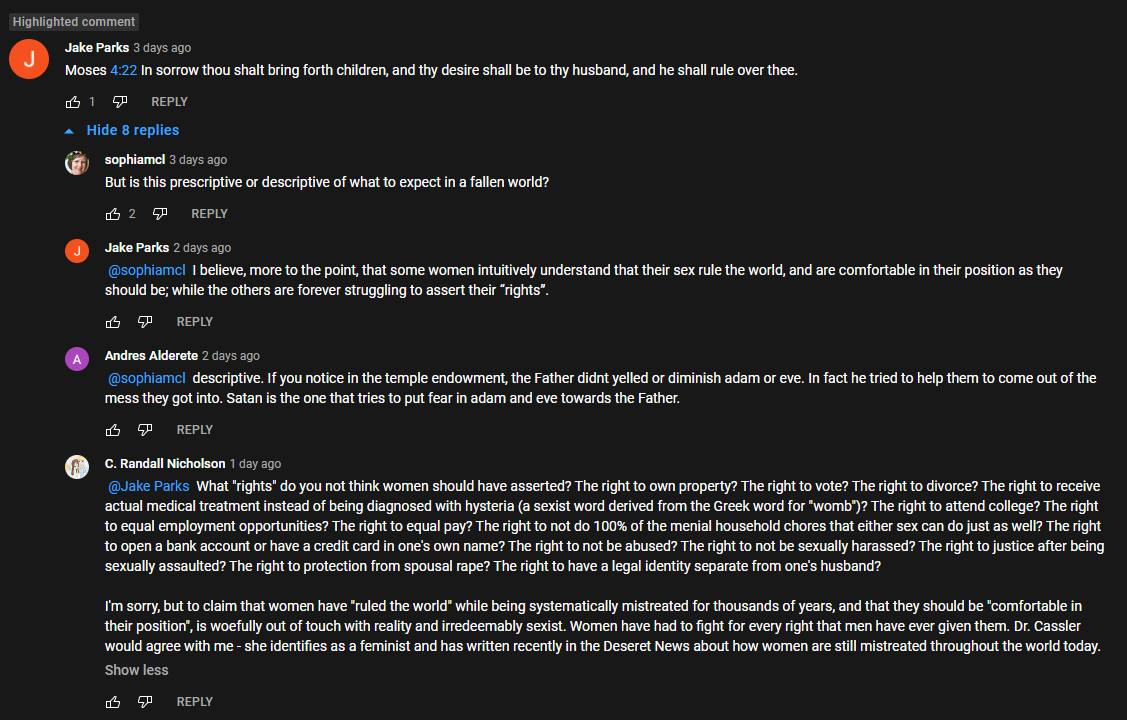
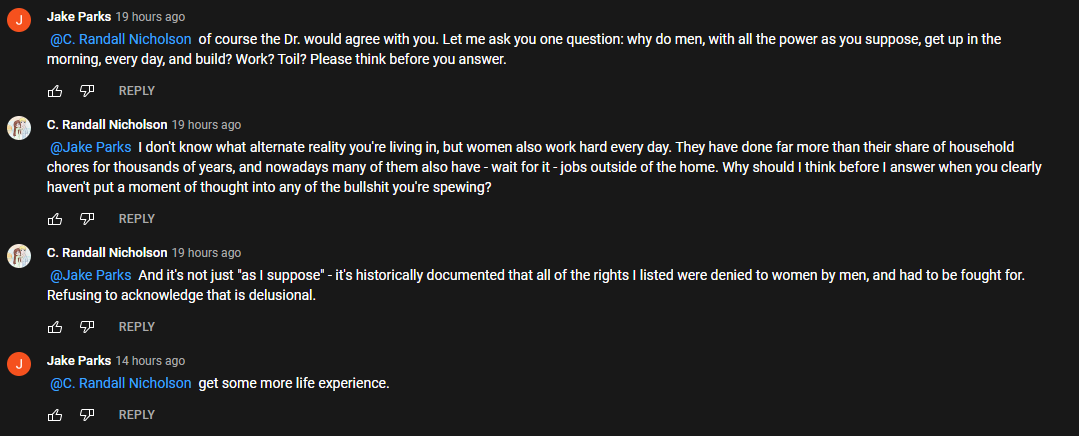

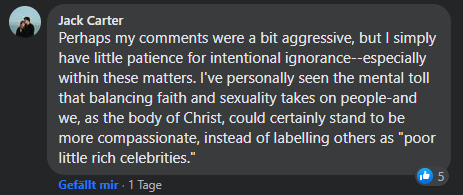
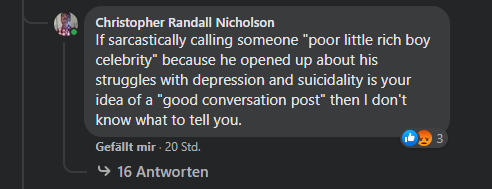
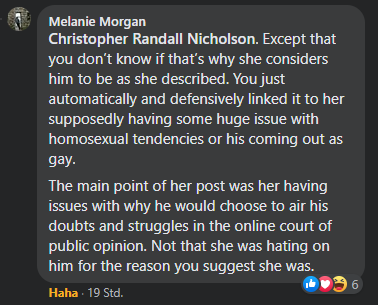
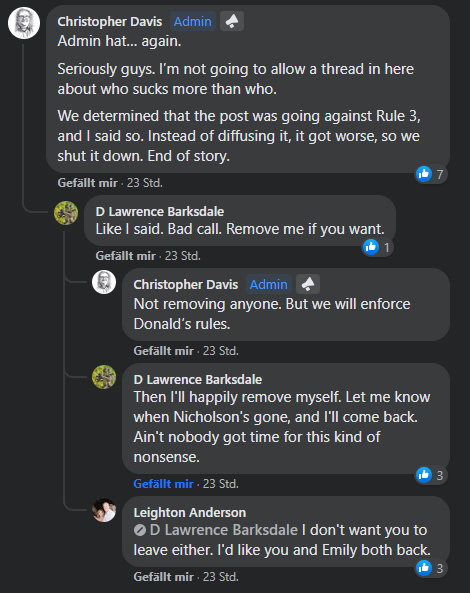

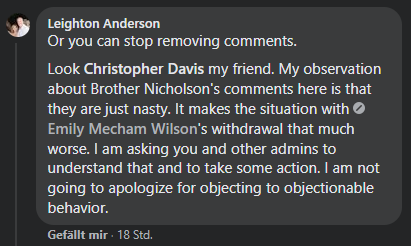

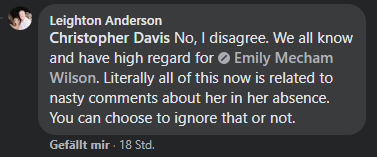
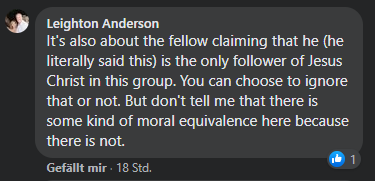
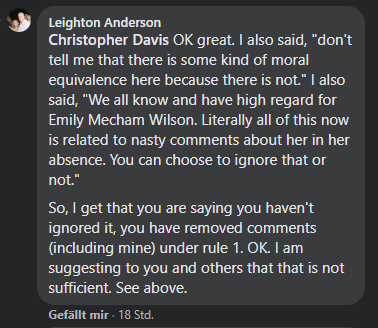

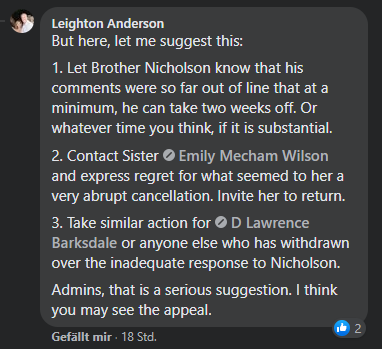
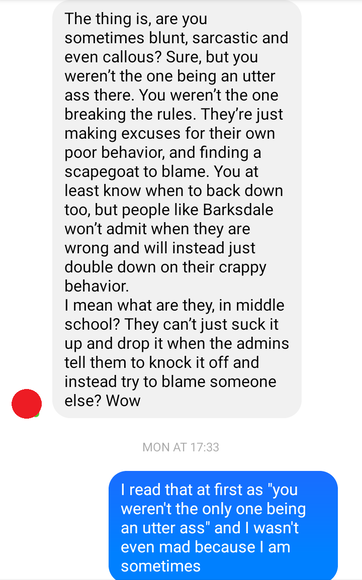

![I'm really sorry, Christopher, though that doesn't cover it. You are doing such an excellent job of showing how someone who is [not] neurotypical is completely misunderstood and *feared* - and you are tying that experience into the larger conversation about difference /race/ violence. I love that the reader is *so* blindsided - just as you were. I love the care you take in explaining your actions and your hesitations - the way we are shown just how careful you are - and then how all of that backfires. Just really strong scenes, smart pivots, really good control.](/uploads/4/9/4/8/49486603/editor/sinorjusthowcareful.png?1642365584)

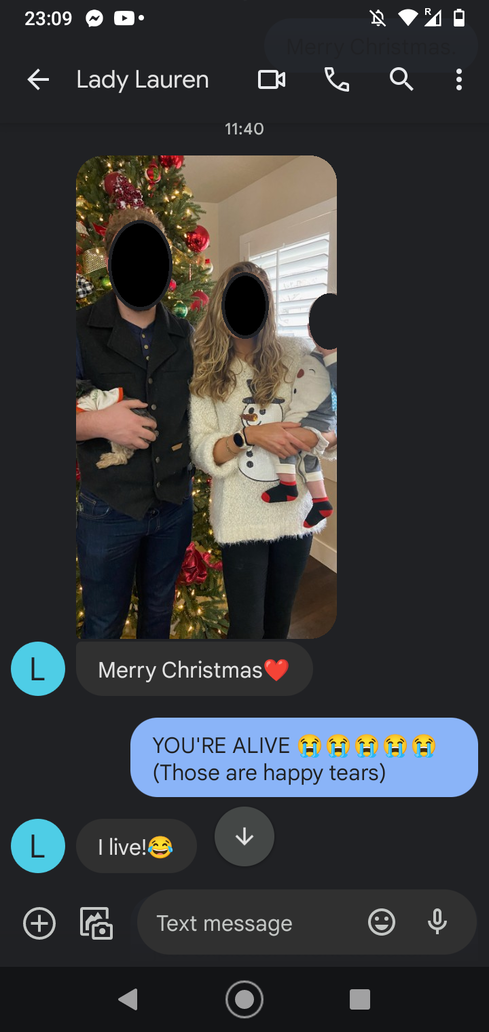


 RSS Feed
RSS Feed
